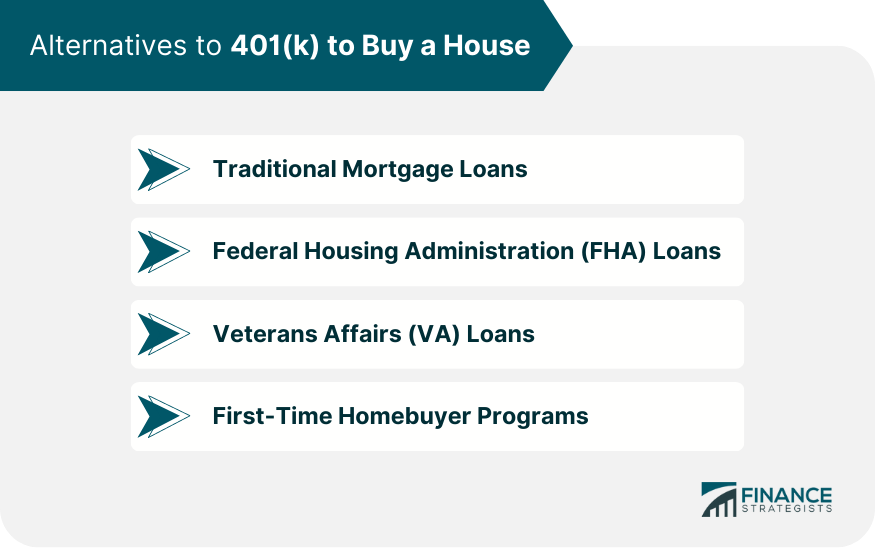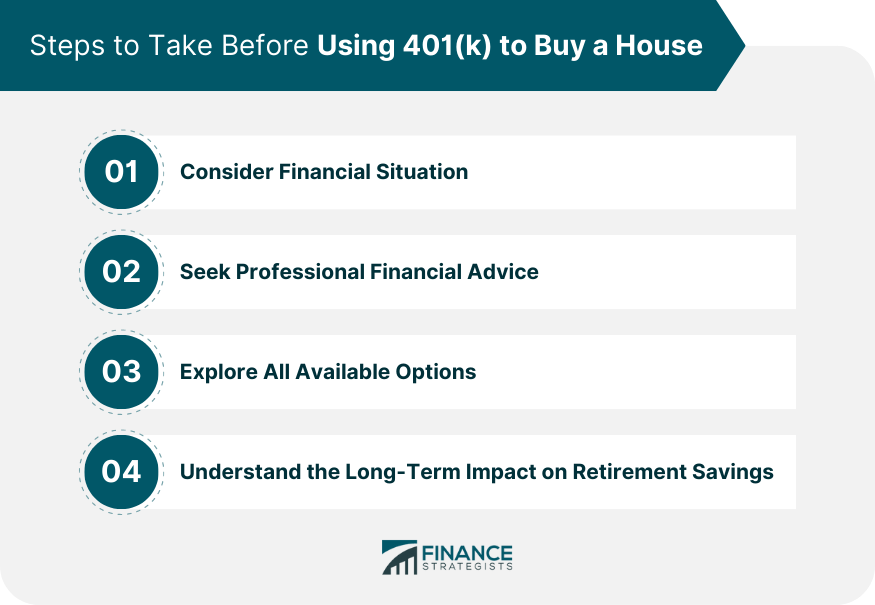Yes, it is technically possible to use your 401(k) to buy a house, but it's generally not recommended unless it's absolutely necessary. If you decide to do so, you have two options: take out a 401(k) loan or make a "hardship withdrawal." A 401(k) loan allows you to borrow money from your account with the agreement to pay it back within a specified timeframe. Remember, though, that if you leave your job, the loan may need to be paid back quickly, typically within 60 days. Hardship withdrawals, on the other hand, allow you to take money out of your 401(k) without needing to pay it back. However, these withdrawals are subject to income tax and a 10% early withdrawal penalty if you're under the age of 59½. Both options have the potential to derail your long-term retirement savings, so it's crucial to weigh all your options carefully.
A 401(k) loan allows you to borrow money from your retirement account. You're essentially borrowing from yourself, with the understanding that you'll repay the loan with interest over a set period. The process for withdrawing funds from your 401(k) for a home purchase varies depending on your plan's rules. Generally, you would submit a request to your plan administrator, specifying that the loan is for the purchase of a primary residence. 401(k) accounts are regulated by the IRS, and there are specific rules about when and how you can access your money. Typically, you can only withdraw funds from your 401(k) after you reach 59.5 years old, become permanently disabled, or upon your death. However, there are exceptions for specific situations, including buying a house. The IRS allows "hardship withdrawals" from 401(k)s under certain circumstances, which include buying a house. However, these withdrawals are subject to income tax, and if you're under 59.5, a 10% early withdrawal penalty may apply. One of the main advantages of using your 401(k) to buy a house is that it gives you access to large sums of money without the need for loan approval from a bank. Another benefit is that the interest rate on a 401(k) loan may be lower than what you'd receive on a mortgage loan, which can save you money over time. Taking a loan from your 401(k) doesn't affect your credit score, as it's not reported to credit bureaus. This aspect is particularly beneficial for those with low credit scores. When you take a loan from your 401(k), you're essentially paying yourself back with interest. This means that you're contributing to your retirement savings while also financing your home. The most significant downside of using a 401(k) to buy a house is that it can seriously impact your retirement savings. If you fail to repay the loan, or if you leave or lose your job before repayment is complete, the outstanding balance can become a taxable distribution, and penalties may apply. While you pay the interest on your 401(k) loan back to yourself, that money will be taxed again when you withdraw it in retirement, meaning you're effectively paying double taxation. If you default on your 401(k) loan, the IRS will treat it as an early distribution, which can lead to hefty taxes and penalties. Additionally, if you make a hardship withdrawal, you may also face a 10% early withdrawal penalty if you're under 59.5 years old. Some 401(k) plans don't allow you to make additional contributions until you've repaid your loan. This can inhibit the growth of your retirement savings and set you back in your financial planning. Standard mortgages are the most common way people buy homes. They typically offer lower interest rates for those with good credit scores and stable income, and you can choose from a variety of repayment terms. FHA loans are government-insured mortgages designed for low-to-moderate-income borrowers. They require a lower minimum down payments and credit scores than many conventional loans. If you're a veteran, you may be eligible for a VA loan. These loans often offer competitive interest rates and don't require a down payment. Numerous state and local governments offer first-time homebuyer programs that provide down payment assistance or competitive mortgage rates. Before deciding to use your 401(k) to buy a house, consider your overall financial situation. If you have other savings or can qualify for a traditional mortgage, it may be better to leave your retirement savings intact. Because of the potential risks and complexities, it's wise to seek advice from a financial advisor before making a decision about using your 401(k) to buy a house. Ensure you have explored all your options for home financing. Look into mortgages, government assistance programs, and other alternatives before tapping into your retirement savings. Consider the long-term impact on your retirement savings. Remember, the money you withdraw from your 401(k) for a house will not be there to grow and provide for your retirement. Tapping into your 401(k) to buy a house is possible but comes with risks that could impact your retirement savings. Options include taking a 401(k) loan or making a hardship withdrawal, both of which have specific processes and regulations governed by the IRS. Advantages include immediate access to funds and possibly lower interest rates, with no impact on your credit score. However, downsides include potentially reduced retirement savings, risk of double taxation, penalties on default or early withdrawal, and possible impact on future contributions. Explore alternatives such as traditional mortgages, FHA loans, VA loans, or first-time homebuyer programs before deciding. Given the complexities, it's advisable to consider your overall financial situation and consult with a financial advisor to understand the long-term impact on your retirement savings before using your 401(k) to finance a home.Can I Use My 401(k) to Buy a House?
Process and Legalities of Using a 401(k) to Buy a House
Process to Withdraw Funds for Home Purchase
401(k) Withdrawal Rules and Regulations
"Hardship Withdrawal" Provision and Homebuyer Exemption

Pros of 401(k) to Buy a House
Immediate Access to Funds
Possibility of Lower Interest Rates
No Impact on Credit Score
Repayment to Own Account
Cons of 401(k) to Buy a House
Potential for Reduced Retirement Savings
Risk of Paying Double Taxation
Dangers of Default and Early Withdrawal Penalties
Impact on Future Contributions

Alternatives to 401(k) to Buy a House
Traditional Mortgage Loans
Federal Housing Administration (FHA) Loans
Veterans Affairs (VA) Loans
First-Time Homebuyer Programs

Steps to Take Before Using 401(k) to Buy a House
Consider Financial Situation
Seek Professional Financial Advice
Explore All Available Options
Understand the Long-Term Impact on Retirement Savings

Conclusion
Can I Use My 401(k) To Buy a House? FAQs
Yes, you can use your 401(k) to buy a house either by taking out a loan or making an early withdrawal. However, both options come with potential drawbacks, such as taxes, penalties, and long-term impact on your retirement savings.
If you use your 401(k) to buy a house, you will be either borrowing against your retirement savings or making an early withdrawal. Both have potential tax implications, and early withdrawals are subject to a 10% penalty unless you meet specific criteria. Moreover, they can significantly impact your retirement savings.
Yes, there are several alternatives to using your 401(k) to buy a house, such as personal loans, home equity lines of credit, or possibly rolling over your 401(k) into an IRA for more flexible withdrawal options.
If you default on a 401(k) loan, the outstanding balance is considered a distribution and becomes subject to income tax. Depending on your age, you may also incur a 10% early withdrawal penalty.
Yes, it's advisable to consult a financial advisor before using your 401(k) to buy a house. They can provide personalized advice based on your financial situation and help you understand the potential long-term effects on your retirement savings.
True Tamplin is a published author, public speaker, CEO of UpDigital, and founder of Finance Strategists.
True is a Certified Educator in Personal Finance (CEPF®), author of The Handy Financial Ratios Guide, a member of the Society for Advancing Business Editing and Writing, contributes to his financial education site, Finance Strategists, and has spoken to various financial communities such as the CFA Institute, as well as university students like his Alma mater, Biola University, where he received a bachelor of science in business and data analytics.
To learn more about True, visit his personal website or view his author profiles on Amazon, Nasdaq and Forbes.











